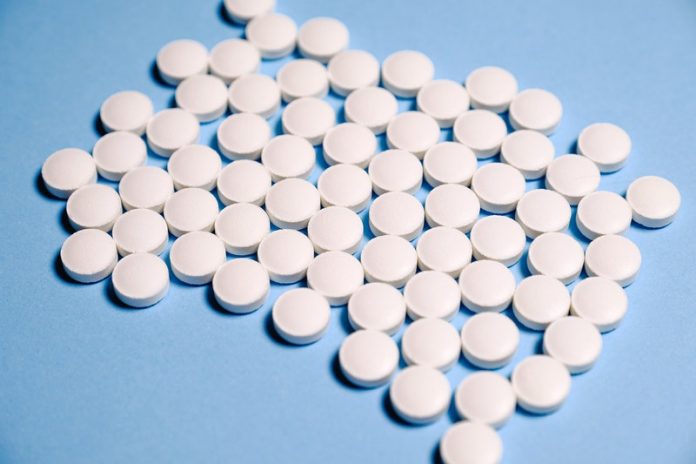
Aspirin is an established, safe, and low-cost medication in long-standing common use in the prevention and treatment of cardiovascular diseases, and in the past a pain relief and fever-reducing medication.
The use of aspirin was very popular during the 1918 Spanish Influenza pandemic, several decades before in-vitro confirmation of its activity against RNA viruses.
Studies showed that aspirin, in addition to its well-known anti-inflammatory effects, could modulate the innate and adaptive immune responses helping the human immune system battle some viral infections.
In a new study, researchers suggest that pre-infection treatment with low-dose aspirin (75mg) use might have a beneficial effect on COVID-19 risk.
The research was conducted by a team at Bar-Ilan University and elsewhere.
In the study, the team analyzed data of 10,477 persons who had been tested for COVID-19 during the first COVID-19 wave in Israel.
Aspirin use to avoid the development of cardiovascular diseases in healthy individuals was associated with a 29% lower likelihood of COVID-19 infection, as compared to aspirin non-users.
The proportion of patients treated with aspirin was much lower among the COVID-19-positive individuals, as compared to the COVID-19-negative ones.
And those people who had been treated with aspirin were less likely to have COVID-19 infection than those who were not.
Moreover, the team found that the conversion time of SARS-CoV-2 PCR test results from positive to negative among aspirin-using COVID-positive patients was much shorter, and the disease duration was two-three days shorter.
The team says the findings of the possible beneficial effect of low doses of aspirin on COVID-19 infection are very promising.
They intend to investigate a larger cohort of patients and in randomized clinical trials.”
One author of the study is Prof. Eli Magen.
The study is published in The FEBS Journal.
Copyright © 2021 Knowridge Science Report. All rights reserved.



